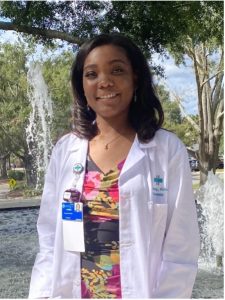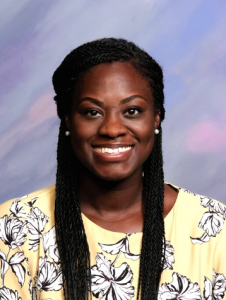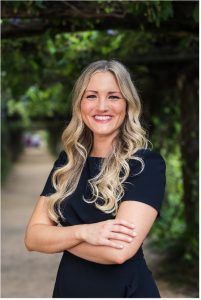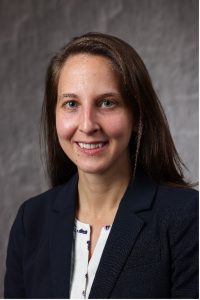January 12, 2022
Story by Kaitlyn Stubblefield
A shortage of public health professionals in the United States presents unique opportunities for pharmacists. The Pharm.D./MPH dual-degree program offered by the UNC Eshelman School of Pharmacy in collaboration with the UNC Gillings School of Global Public Health allows pharmacy students take advantage of those opportunities.
The dual-degree Pharm.D./MPH program prepares students to become health promoters and educators in their roles as pharmacists. As one of the most accessible health-care providers, pharmacists are well-positioned to help address public health concerns such as immunization and chronic conditions such as diabetes and asthma.
Students in the dual-degree program gain the knowledge of drug therapy and public health needed to plan, organize, manage, and perform medication-related activities within a specific public health focus or setting. Once a student has been accepted into the dual degree program, they earn a Pharm.D. and Master of Public Health within five years.
Meet a few of our Pharm.D./MPH alumni and learn what they are doing with their degrees today:
 Lauren Creecy, PharmD MPH, 2020
Lauren Creecy, PharmD MPH, 2020
“After graduating, I completed a PGY1 General Pharmacy Residency and a Teaching certificate at New Hanover Regional Medical Center in Wilmington, NC. In June of last year, I transitioned into a PGY2 Oncology Pharmacy Residency at Novant Health Medical Center in Charlotte, NC. My MPH has definitely set me apart from my peers, providing me with leadership, management skills, and research development experience. I have had the pleasure of conducting institutional research on adding indications to the prescriptions of chronic medications. This year I will be evaluating outcomes associated with biosimilars in breast cancer. Through my continued passion for managing the health of populations, I have played a major role in combating COVID-19 by working with mass vaccination clinics. After the completion of my PGY2 residency, I plan to become a Board Certified Oncology Pharmacist at an outpatient clinic.”
 Seyram S. Fudzie, PharmD MPH, BCPS, CPP 2018
Seyram S. Fudzie, PharmD MPH, BCPS, CPP 2018
“After graduating, I completed two years of pharmacy residency at UNC Medical Center (PGY1-Acute Care Pharmacy, PGY2-Ambulatory Care Pharmacy). After residency, I started as a Clinical Pharmacist Practitioner (CPP) at the UNC Pulmonary Clinic where I currently manage patients with Cystic Fibrosis, asthma, COPD, and other pulmonary diseases. Throughout residency and in my current role, I’ve had an active role in quality improvement, project management, combating vaccine hesitancy, and many other endeavors that my MPH prepared me for.”
 Amy J. Guisinger, PharmD MPH, 2021
Amy J. Guisinger, PharmD MPH, 2021
“I am currently a Visiting Scholar for AESARA, a global market access/health economics and outcomes research consulting firm. My position is a 1-year hybrid between a fellowship and full-time consultant. I work with a variety of pharmaceutical companies (from Big Pharma to small biotech) on outcomes and market research projects, ultimately creating evidence to help patients get medications they need. The skills I learned in my MPH have helped me tremendously with research methods and literature appraisals. It is exciting work – I have a wide variety of projects in all different disease areas. Also, AESARA was built on a mission to give back, and has a nonprofit side called the AESARA Foundation. I’ve been doing a lot of work there too, really using my MPH to help with our fundraising strategy to find key stakeholders.”
 Leah Herity, PharmD MPH, 2018
Leah Herity, PharmD MPH, 2018
“After graduating from UNC, I completed a PGY1 residency in pharmacy practice and PGY2 residency in internal medicine pharmacy. Upon completing residency in 2020, I accepted my current position as an Assistant Professor in the Department of Pharmacy Practice at Albany College of Pharmacy and Health Sciences in Albany, NY. I teach a group work/problem-solving course in the fall semester and a gastrointestinal pharmacotherapy course in the spring. I also practice as a clinical pharmacist in internal medicine at St. Peter’s Hospital in Albany. The MPH has benefited me greatly in terms of understanding study design and biostatistics for research projects. The experiences we gained in group work and leadership through the PHLP curriculum have also helped me immensely. I believe that for pharmacists wanting to work in academia, the MPH really sets us apart!”
To learn more about the Pharm.D. and Master of Public Health dual degree program, visit the dual degree information page.
Latest News

Dean Angela Kashuba receives Carolina Alumni Faculty Service Award

RASP poster presentations capture student research


